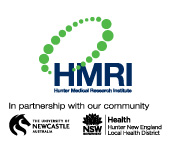

Why does Newcastle need a Research Centre in transplant immunology?
Transplantation is one of the major medical triumphs of the last 60 years. It not only saves lives; it restores life allowing people with organ failure to go forward and lead fulfilling lives after transplantation.
Over this time improved outcomes for patients have been achieved because research findings have been carefully applied to recipients and live donors. However, major problems in transplantation remain unsolved e.g. chronic rejection, tolerance and transplant- related cancer. The good news is they can be solved by scientific research combined with collaboration between transplant scientists and clinicians. Now new opportunities to solve these problems have come about because the human gene structure has been defined. Therefore todays research becomes tomorrows transplant practice.
We are establishing a world class facility at the John Hunter Hospital campus. We will appoint a Professor of Transplant Immunology with international standing to lead the centre.
So who benefits from this Research Centre?
Transplant recipients will benefit by identifying those who are partially tolerant of their transplant immunosuppressive drugs. This may mean they can be reduced or withdrawn. If so, then transplanted children would not have stunted growth as they do now, the high cancer risk amongst recipients would be reduced and the risk of infection would also be less. To accurately diagnose chronic rejection through research will most likely lead to better long term treatment and may mean better transplant survival for recipients.
The Indigenous population requiring transplantation is increasing a lot. These recipients including those in rural areas, and children would benefit from improved point of clinical care management software called Transnet, which is an initiative of the Newcastle transplant program and also developed here in Newcastle. This program manages the information of all transplant recipients wherever they live and is an invaluable tool for research development.
The Centre will provide better opportunities for training local physicians/ surgeons and post doctoral scientists in research. Strong partnerships with other research teams in the Hunter and internationally will also result. In time we hope the Centre will contribute to the standard of transplant practice in Australia and overseas too.
What difference will it make?
With a dedicated research team and a professor in transplant immunology on board, the new centres’ research findings in transplantation will be translated into clinical practice.
The centre will also collaborate with other teams in the Hunter Medical Research Institute and other international Centres. We are excited about future clinical applications that will have been built on research from the Newcastle Transplant Unit done in the last 25 years.
Mission
• to study tolerance in transplantation and to detect tolerant transplant recipients
• to study antibody mediated rejection improving its diagnosis and treatment in the clinic
• to apply the genome related technologies of systems biology to the clinic
• to define the risk factors and pathogenesis of cancer in transplant recipients
• to develop preventative treatment for ischaemia/reperfusion injury which all transplanted organs suffer
• to facilitate the research training of advanced trainee physicians and surgeons and post doctoral scientists
• to collaborate with research/clinical groups in the Hunter New England Local Health Network sharing technologies and objectives
• to communicate with the community about benefits and aspirations of this work
Our Vision
Our vision is that problems in transplant clinical practice can be solved by integrating research in transplant immunology with practice. Our vision is for a dynamic alliance between the laboratory and clinic; and other national and international transplant research centres. Our vision is the application of molecular and systems biology grown from cloning the human genome to transplant research and practice. Our vision is the integration of Transnet with business intelligence software and other transplant databases to accurately define clinical problems. Our vision therefore is that substantial improvements in transplant recipient outcomes can be achieved.



Follow Us